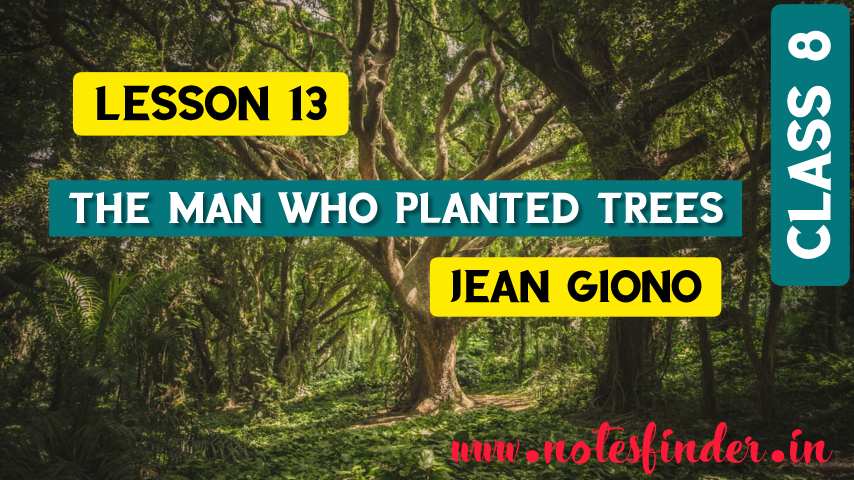About the Poet and the Text:
Henry Wadsworth Longfellow (1807 – 1882) was one of the most famous American poets of his day. Longfellow is well known for his lyric poems, noted for their musicality. His first major poetry collections were Voices of the Night (1839) and Ballads and Other Poems (1841). The present text is a part of Longfellow’s poem of the same name.
হেনরি ওয়াডসওয়ার্থ লংফেলো (১৮০৭ – ১৮৮২) ছিলেন তাঁর সময়ের অন্যতম বিখ্যাত আমেরিকান কবি। লংফেলো তাঁর গীতি কবিতার জন্য সুপরিচিত, তাদের সংগীতময়তার জন্য বিখ্যাত। তাঁর প্রথম প্রধান কবিতা সংগ্রহ (গ্রন্থ) হল Voices of the Night (1839) এবং Ballads and Other Poems (1841)। বর্তমান পাঠ্যটি লংফেলোর একই নামের কবিতার একটি অংশ।
An April Day – Henry Wadsworth Longfellow
When the warm sun, that brings
Seed-time and harvest, has returned again,
'T is sweet to visit the still wood, where springs
The first flower of the plain.
I love the season well
When forest glades are teeming with bright forms,
Nor dark and many-folded clouds foretell
The coming-in of storms.
From the earth's loosened mould
The sapling draws its sustenance, and thrives;
Though stricken to the heart with winter's cold,
The drooping tree revives.
The softly-warbled song
Comes through the pleasant woods, and coloured wings
Glance quick in the bright sun, that moves along
The forest openings.
When the bright sunset fills
The silver woods with light, the green slope throws
Its shadows in the hollows of the hills,
And wide the upland glows.
An April Day (Lesson 3) Bengali Meaning | Class 8
When the warm sun, that brings
যখন উষ্ণ রৌদ্র, যে নিয়ে আসে
Seed-time and harvest, has returned again,
বীজ বপন ও ফসল কাটার সময়, আবার ফিরে এসেছে,
‘T is sweet to visit the still wood, where springs
নিস্তব্ধ বন ঘুরতে যেতে ভালো লাগে, যেখানে ফোটে
The first flower of the plain.
সমতল ভূমির প্রথম ফুল।
I love the season well,
মরশুমটা আমার ভালো লাগে,
When forest glades are teeming with bright forms,
যখন জঙ্গলের ফাঁকা ঘাসের জমি উজ্জ্বল রুপে ভরে যায়,
Nor dark and many-folded clouds foretell
না কোনো কালো ও পুঞ্জীভূত মেঘ পূর্বাভাস দেয়
The coming-on of storms.
ঝড়ের আগমনের।
From the earth’s loosened mould
পৃথিবীর আলগা নরম গুড়ো মাটি থেকে
The sapling draws its sustenance, and thrives
চারাগাছ তার বেঁচে থাকার রসদ সংগ্রহ করে এবং সতেজ হয়ে ওঠে
Though stricken to the heart with winter’s cold;
যদিও শীতের ঠান্ডায় হৃদয় ভারাক্রান্ত ;
The drooping tree revives.
নুইয়ে পড়া গাছ পুনরায় বেঁচে ওঠে।
The softly-warbled song
স্নিগ্ধ- পাখির কিচিরমিচির গান
Comes from the pleasant woods, and coloured wings
মনোরম বন থেকে আসে এবং রঙিন ডানাগুলির
Glance quick in the bright sun, that moves along
এক ঝলক দেখা যায় উজ্জ্বল রোদে, যা এগিয়ে চলে
The forest openings.
বনের খোলা যায়গা গুলি দিয়ে।
When the bright sunset fills
যখন উজ্জ্বল সূর্যাস্ত পূর্ণ করে দেয়
The silver woods with light, the green slope throws
রুপোলী বনকে আলোতে, সবুজ ঢাল ছুঁড়ে দেয়
Its shadows in the hollows of the hill,
তার ছায়া পাহাড়ের ফাঁকা জায়গাগুলিতে
And wide the upland glows.
প্রশস্ত উচ্চভূমি আলোতে চকচক করে।
An April Day (Lesson 3) Questions – Answers | Class 8
Activity 1
Tick the correct alternative :
(i) When the warm sun has returned again, it is nice to
(a) sing out loud
(b) visit the still wood
(c) sail down the river
Ans : (b) visit the still wood
(ii) The sapling draws its sustenance from
(a) the blue sky
(b) rainwater
(c) earth’s loosened mould
Ans : (c) earth’s loosened mould
(iii) The birds
(a) glance quick in the bright sun
(b) sit on the branches of the trees
(c) peck at the grains from the ground
Ans : (a) glance quick in the bright sun
(iv) The green slope throws its shadow upon
(a) the mountain
(b) the hollows of the hills
(c) the sand dunes
Ans : (b) the hollows of the hills
Activity 2
Complete the following sentences with information from the text :
(a) Spring is the season of blossoming of flowers.
(b) The coming-on of storms is foretold by many-folded dark clouds.
(c) The birds move alongthe forest openings.
(d) The bright sunset fills the silver woods with light.
Activity 3
Answer the following questions:
Why do you think the poet ‘‘loves the season well” ?
Ans: The poet loves the season well because its splendour attracts the poet. The first flower of plain, the forest glades teeming with bright forms, absence of dark and many folded clouds, softly- warbled song etc are some of the things the poet likes of this season.
Activity 4
Fill in the chart with information from the text :
| Who | Did What |
| (i) The first flower | springs in the forest. |
| (ii) The forest glades | are teeming with bright forms. |
| (iii) The saplings | draws its sustenance from loosened mould. |
| (iv) The drooping trees | revives. |
Activity 5
Answer the following questions :
(a) Why is it sweet to visit the wood during springtime ?
Ans: It is sweet to visit the wood during springtime becsuse the first flower of the plain springs there.
(b) What does winter’s cold do to the tree?
Ans: Winter’s cold makes the tree stricken to the heart and drooping.
(c) What time of the Day do you think it is when “ The green slope throws its shadows in the hollows of the hills ?”
Ans: I think it is late afternoon when “the green slope throws it’s shadows in the hollows of the hills.”
(d) Why do you think the poem is titled “An April Day”? Suggest an alternative title.
Ans: The poem is titled “An April Day” because it describes a day in the month of April.
An alternative title may be “Spring” or ” A Spring’s Day”
Activity 6(a)
Fill in the blanks with the correct verb forms from those given in brackets:
(i) He has been working here for the last two years. (worked, is working, has been working)
(ii) The baby has been crying all morning. (cries, has been crying, had cried)
(iii) It had been raining for a long time before we went to school. (had been raining, rained, rains)
(iv) The passengers of the train had been sleeping fast when the accident occurred. (slept, had been sleeping, sleep)
Activity 6(b)
Fill in the blanks with either the Future Continuous tense or Future Perfect tense of the verbs given in brackets :
(i) I suppose it will be rainingwhen we start. (rain)
(ii) Hewill be meeting us next week. (meet)
(iii) She will have reached Jamshedpur by then. (reach)
(iv) This book is not fat, I shall have read it by lunch time. (read)
Activity 7
Make meaningful sentences of your own with the following words :
(a) Harvest : Farmers feel happiness during the season of harvest.
(b) Teeming : The pond is teeming with rain.
(c) Thrives : She seems to thrive on stress.
(d) Glance : He walked away without a glance.
Activity 8
Write a paragraph in about eighty words on the changes that you see when spring comes after winter.
Ans: Changes in Nature during Spring 👈 Click here
Find More👇
- Lesson 1 The Wind Cap- Jane Yolen
- Lesson 2 Clouds – Intizar Hussain
- Lesson 3 An April Day – H.W. Longfellow
- Lesson 4 The Great Escape – Sugata Bose
- Lesson 5 Princess September – W.S. Maugham
- Lesson 6 The Sea – James Reeves
- Lesson 7 A King’s Tale (a popular legend)
- Lesson 8 The Happy Prince – Oscar Wilde
- Lesson 9 Summer Friends – Mary Lamb
- Lesson 10 Tales of Childhood – Roald Dahl
- Lesson 11 Midnight Express – Alfred Noyes
- Lesson 12 Someone – Walter de la Mare
- Lesson 13 The Man Who Planted Trees



